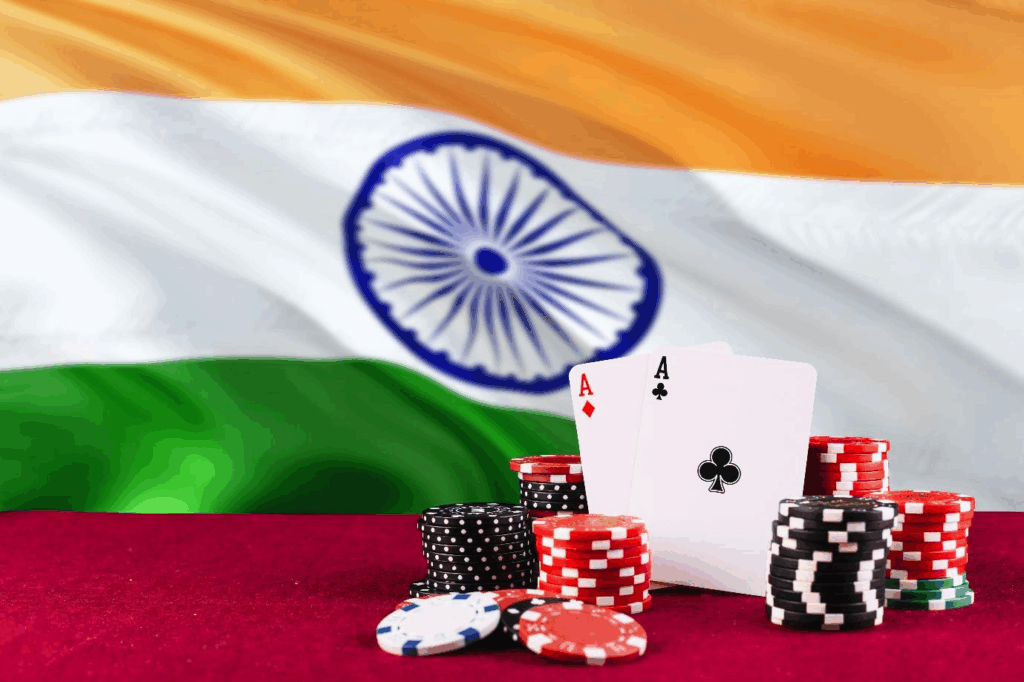Gambling has a rich history in India, being deeply integrated into the country’s culture, mythology, and legal framework. While modern players are already used to the possibility of launching any casino game on their smartphones and enjoying entertainment on the go, discovering the roots of this activity is thrilling. It’s difficult to accept the fact that the prototypes of most games we play daily have been invented centuries ago – and their advanced versions are available in the digital world.
First Mentions of Risky Pastime: Gambling in Mythology and Early Society
Gambling is a true phenomenon in the state since the first mentions of this entertainment were dated back for thousands of years. The Indian epic story, Mahabharata, describes a dice game between two brothers that eventually resulted in a war. This writing confirms that ancient people were already aware of dangers of uncontrolled gambling behaviors.
Vedic manuscripts are another source from which modern researchers can discover more about the industry during that time. Gambling was often considered a social activity conducted during festivals and holidays. Arthashastra is a life-changing writing: it not only described betting in the 3rd century BC, but also recognized it as a popular public activity and recommended integrating specific taxation systems. All these texts prove that the roots of the current iGaming sector were established centuries ago, and it has never stopped evolving.
Medieval and Colonial Periods: Royal Engagement and First Legislation
In the Medieval era, betting was only accessible to the wealthy and the royalty. Dice and card games and wagering on animal fights were in demand in India, but the entertainment was limited. The sector remained pretty stable and unregulated until the 17th century, when gambling underwent a significant transformation. British people arrived in the country at that time and brought the following amendments:
- Gambling was no longer limited to traditional Indian games, as the British popularized horse racing betting and established the first racetrack in Madras (Chennai)
- Modern sports wagering mechanisms, including bookmakers, odds, and betting prize pools, were integrated

- Rapid rise in card games’ popularity: Western-style games like poker and bridge quickly became widespread in India
- Informal (underground) gaming houses appeared across the country and accepted players from different societies
During the colonial period, the growing concern about the moral side and the negative effects of games of chance arose. Many people engaging in this risky activity ended up in debt; the poor considered it a way to hit massive sums of money, but instead were exploited by richer Indians.
The First Gambling Act in India
The lack of industry regulations led to chaos and increased addiction rates, so the government, affected by British colonizers, issued the first legislation in 1867. The Public Gaming Act was the primary document controlling the gaming sector in the country. Operations of gaming houses were strictly prohibited, and Indians breaking the law were imprisoned.
However, the act wasn’t relevant for gambling activities conducted in private homes, which created a legal gap for underground casinos. Authorities also aimed to develop specific regulations to open legal establishments and control their work, but this decision was complicated considering the ban on risky activities.
Post-Independence: The Debate Between Skill and Luck
India gained independence in 1947, but inherited the colonial heritage in regulating the gambling sector. The 1867 act remained relevant; the government granted the right to control the industry independently.

Since then, disputes around skill and luck have begun. Games of chance were restricted for decades since their unpredictability can lead to addiction, while skill-based activities remained legal.
Modern Era: The Rise of Online Gambling
Currently, India is among the major hubs for international operators, with over 140 million of its residents excited about playing casinos or placing sports bets. Surprisingly, the government hasn’t issued any legal documents since 1867, and the iGaming sector remains a grey zone in the state. This gives multiple opportunities for operators and players: users can access the casino online 1xBet India without restrictions or limitations and take advantage of its services. Giant gambling and betting companies enter the country’s market and provide innovative opportunities to adrenaline hunters. The possibility of downloading a mobile app and playing on the go is attractive, so it’s evident that a growing number of people are excited by this pastime.
Tech Advancements and Further Regulations
India is known for its quickly developing technological infrastructure, allowing iGaming companies and users to interact smoothly. Implementing UPI payment solutions and a mobile-first approach simplifies the way towards limitless fun and massive wins. However, the Indian government is concerned about the growing rate of gambling-addicted people.
The number of users struggling with compulsive habits reached 7.4% of the entire population, and the figure is alarming. Authorities are projected to adapt legislation to modern realities and set a clear framework for controlled and transparent activities. The ancient concerns about gambling harms remain relevant in 2025, but luckily, modern technologies allow for coping with the problem effectively and guarantee enhanced consumer protection.
